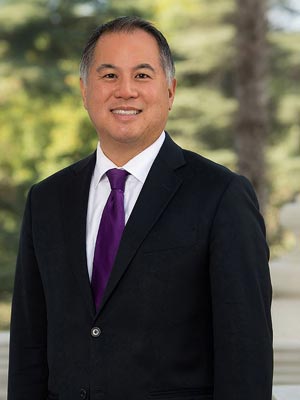May 31, 2023 - More juries in California may soon be more racially and economically diverse, thanks to Tuesday’s approval in the Assembly of AB 881 by Assemblymember Phil Ting (D-
While originally a statewide proposal, the amended legislation now creates a pilot program in five counties: San Francisco, Los Angeles, Alameda, Kern and Monterey. California, like many states, requires employers to provide time off for jury duty, but they don’t have to pay their employees while serving. In turn, many workers often seek to be excused from their civic duty, so they can go to their jobs to earn more money.
“The right to a jury of one’s peers is at the core of our justice system, and financial hardship should not determine whether someone can be part of our democracy,” said Ting. “Individuals from all backgrounds are entitled to serve on juries and should receive adequate compensation for doing so.”
Low jury pay means many people of color cannot afford to serve as jurors, even though they may come from the same communities and share the same relevant life experiences as the accused. Under AB 881, known as Be The Jury Pilot, jurors qualify for the daily $100 stipend if their household income is less than 80 percent of their area median income and meets one of following criteria: (1) Juror is not compensated for jury duty by their employer or (2) Juror is self-employed or unemployed.
Ting’s legislation enjoys support from both prosecutors and public defenders. They see juries are becoming less diverse. Studies show when juries are more reflective of the communities they serve, they spend more time in deliberations and are less likely to presume guilt, which help defendants get a fair trial.
"Every day, in courtrooms all over the state, jurors make crucial decisions in criminal trials but are only paid $15 per day -- an amount that hasn't increased in over 20 years. Consequently, many low to moderate income community members are often excluded from serving as jurors. This is undemocratic. AB 881 is a targeted and tested approach to increasing jury diversity that fairly and directly compensates qualifying Californians to enable them to perform their highest civic duty,” said San Francisco Public Defender Mano Raju.
“I would like to thank Assemblymember Ting for his leadership and tireless efforts to expand Be The Jury,” said San Francisco District Attorney Brooke Jenkins. “Ensuring equal access for all community members to serve on juries regardless of income will strengthen our criminal justice system and ensure that verdicts represent our communities and values. I urge the California Senate to pass this bill.”
AB 881 would build on San Francisco’s successful Be The Jury pilot program, which Ting also championed two years ago under AB 1452. In its first six months of implementation, the results have been substantial:
- Eighty-one percent of participants say they could not have served without the $100 per day stipend.
- Program participants reflected the racial demographics of the broader San Francisco population. Sixty-three percent of participants self-identified as people of color.
Ting’s bill now heads to the Senate for consideration.
Source: Assemblymember Phil Ting








